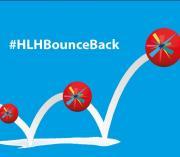The Challenges Facing Britain's Libraries
3rd November 2011
In recent weeks a corner of north-west London has become an unlikely battleground, with scenes that could eventually play out across the country.
Brent Council's decision to close six of its 12 libraries has been met with a staunch protest movement and on-going legal challenges, but following an approval from high court judges the council looks to be finally getting its way.
With local authorities everywhere having to make tough choices due to severe budget cuts, it seems little wonder that libraries might eventually fall into the firing line. Brent Council has repeatedly insisted that its plans to restructure and consolidate its library system will be beneficial in the long-term, but residents, reluctant to travel further afield to make use of the libraries that have escaped the purge, have lambasted the council's claims as facile spin.
Libraries are often held up as ailing institutions, suffering from a wider malaise in which literacy levels are dropping and books are increasingly seen as pass�. There may be some truth to the claims that we are reading less and less, but it is also hard to fault the protestors' claims of the value libraries bring to communities. From meeting places for the elderly, useful resources for students to vital learning environments for young children, libraries are held up as one of the few beacons of all-encompassing community enfranchisement. Libraries, of course, no longer cater for just bibliophiles, but increasingly stock a range of CDs and DVDs, as well as providing newspapers, regular workshops and internet-enabled computers.
That libraries are so keen to boast of internet access is perhaps an interesting irony, as the web itself could at least be held partly responsible for the library's loss of status. As a repository of knowledge, the internet is awash with information available mostly for free and at the click of a button, but it has not fully usurped the printed word, as any student scolded for citing a link in an essay may have found out. Rather than viewing the internet as a threat, librarians are often eager to talk up how the two can exist in harmony.
As well as the web, the growing popularity of e-books certainly has the potential to challenge the dominance of their paper cousins. But as inexpensive and space-saving as they may be, the electronic experience is simply not as tactile as a printed book, so their adoption will no doubt be resisted by many, including parents with strong beliefs in their children experiencing printed books over electronic substitutes. Again, this is not to say that e-books and libraries have to be mutually exclusive. In fact, some libraries have embraced them to the extent of pioneering schemes in which they are added to the library's service.
Struggling to keep pace with technology is one challenge, but the challenge of staying open altogether is quite another. Some have suggested that libraries ought to adopt a more business-minded approach in order to cut costs, but should they have to? Critics would argue that this runs contrary to the more noble aims of community cohesion and enlightenment that libraries stand for. A handful of commenters have gone even further by raising the notion of opening up libraries to the private sector, but this has proved just as contentious.
In their quest to run on ever tighter budgets, some libraries have turned to volunteers in order to cope. In some cases this has proved rather effective, with retired people in particular often willing and able to assist, but as solutions go this approach could certainly falter if applied nationwide. City-dwellers and those who have not yet reached retirement age may feel saddened by the plight of their local library, but their hectic schedules may not afford them the time and energy needed to make a firm commitment.
The pressure on local authorities to slash their spending has perhaps never been greater, so some sympathy must be afforded to Brent Council. The backlash against their efforts, however, is a striking demonstration of how greatly Britain's libraries are cherished by the public, and represents a dignified victory for the protestors. But with the matter still yet to be resolved, critics of the council's decision are forlornly finding that Oscar Wilde's adage about "knowing the price of everything and the value of nothing" may well be ringing true.
www.sustainablegov.co.uk
Highland Libraries now part of Highland High Life
From 1 October 2011, library services will be provided by High Life Highland an arms length company set up to deliver community learning and leisure services for The Highland Council.
Library Cuts in Highland - Less Than Expected
From the Highland Council Budget Papers - February 2011
Public Consultation Summary
We asked for views on five options to save �384,000 out of the �2.984m annual
budget. These options were to close 17 small local libraries, or a major urban library,
reducing opening hours, removing seven school librarian posts and ceasing the
Bookstart service for early years. Around 300 separate comments were fed back and
eight petitions were received.
From this consultation, respondents told us that closure should be avoided because of
the importance of local libraries for communities and culturally. Many people told us
how they used and valued their local library service. To avoid closures reducing
opening hours and co-locating libraries with other services such as schools and service
points were favoured. 77% of Citizen's Panel said they were willing to see a library run
in a shared building. Other views included transferring the management to a not-forprofit
organisation, charging more for services or using more volunteers. Feedback
was less conclusive about removing the school librarian posts and ceasing the early
years Bookstart service.
So, we propose to combine some rural libraries with local facilities (Invergordon with
Service Point and Plockton with local school library); look to merge school and
community library provision; reduce library opening hours; and remove Early Years
book fund. This will save �131,000 spread over the next two years; taking only a third
of the saving originally sought.
Related Businesses
Related Articles
Library Book Loan Payment Scheme Updated To Benefit Authors
Library book loan payment scheme updated to benefit authors enabling authors to earn up to £6,600 from loans of their books from libraries. Scheme enables authors to earn up to £6,600 from loans of their books from libraries.
Supporting Innovation - Funding For Public Libraries
Libraries across Scotland can apply to the Public Library Improvement Fund to help finance creative projects and sustainable services. Projects that could be supported under the £450,000 Scottish Government fund include tackling the cost of living crisis, bridging the digital divide, tackling the attainment gap for children and young people, or addressing sustainable development goals.
The results are in...Highland libraries achieve 100%
The team running High Life Highland's library service have retained their Customer Service Excellence award, achieving a 100% full compliance with the prestigious award's criteria. Talking about the award, Julie Corcoran, HLH's Head of Libraries said, "The Customer Service Excellence Award has been developed by the Cabinet Office to acknowledge excellence in public services.
Still Time To Keep The Heid
Readers young and old are being challenged to spend six minutes reading on Wednesday 11May 2022. It is part of Keep the Heid and Read campaign, a Scotland-wide reading initiative led by The Scottish Library and Information Council.
Keep The Heid And Read This Wednesday 11th May
Readers young and old are being challenged to spend six minutes reading on Wednesday 11May 2022. It is part of Keep the Heid and Read campaign, a Scotland-wide reading initiative led by The Scottish Library and Information Council.
Celebrate World Book Day with a visit to your local library
The 25th anniversary of World Book Day is today Thursday (March 3) will be celebrated across High Life Highland libraries with a huge range of activities. Alongside World Book Day-themed Bookbug sessions, there will be book tokens that can be swapped for special books, competitions, fancy dress, book sales and displays.Wick Community Company Teams Up With Hlh Libraries Taking Tech For Disadvantaged Youngsters' Scheme
Donations of old laptops and PCs are being accepted at High Life Highland (HLH) libraries to help give children access to technology. HLH has teamed up with Budding Engineers, a local Community Interest Company based in Wick that provides a scheme called Tech4Tots & Teens.Neil Gunn Writing Competition 2021/22 - Closing Date Friday 04 March 2022.
High Life Highland and the Neil Gunn Trust are delighted to announce that from Monday 20th September 2021, the 21/22 Neil Gunn Writing Competition is open for entries. The lead judge is distinguished author and patron of the Neil Gunn Trust, James Robertson.
Highland Library Operator Welcomes Reports
High Life Highland, the Charity responsible for the operation of libraries across Highland has welcomed two new reports on the role of libraries in communities during lockdown and what it will look like after the pandemic. Chairman of High Life Highland's Charity Board, Ian Ross said, "We have been aware of a report written by the Carnegie Trust about libraries since the document was released to the public.
High Life Highland Is Bouncing Back
In a report being presented to The Highland Council's Recovery Board on 24th August, Steve Walsh, High Life Highland's Chief Executive, has outlined the charity's road to financial recovery thanks to its bounceback campaign. Mr Walsh explained, "It now seems like an over-used phrase, but when the pandemic hit in March it was clear that High Life Highland, along with every other organisation was facing unprecedented challenges.
